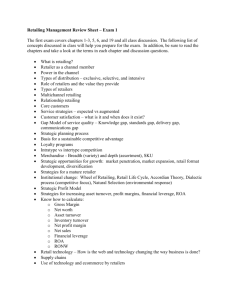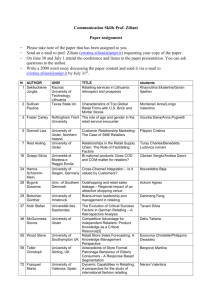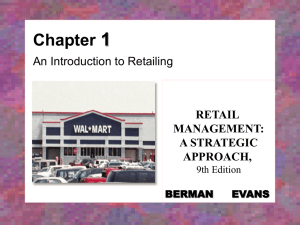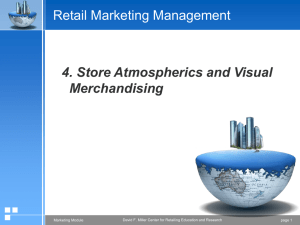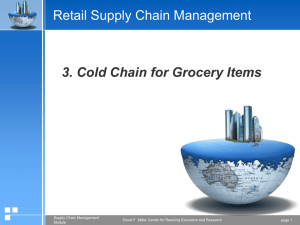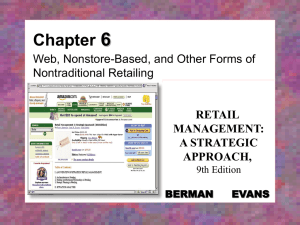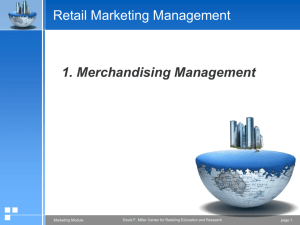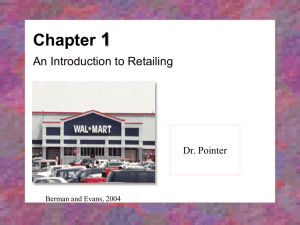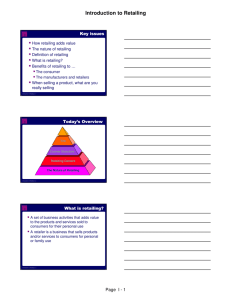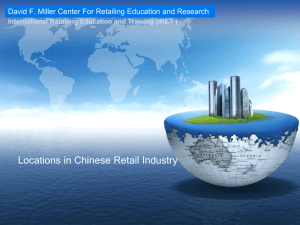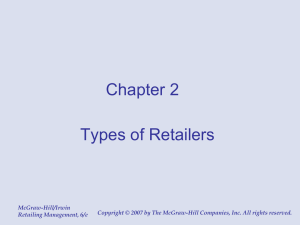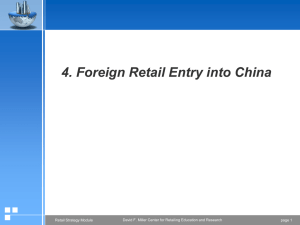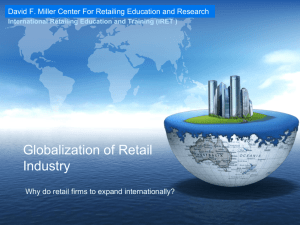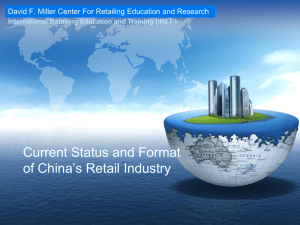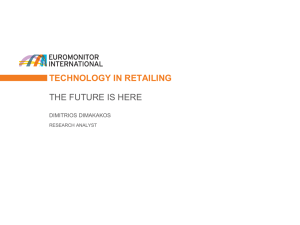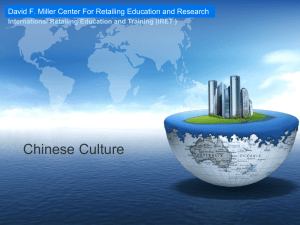Retail Supply Chain Management
advertisement
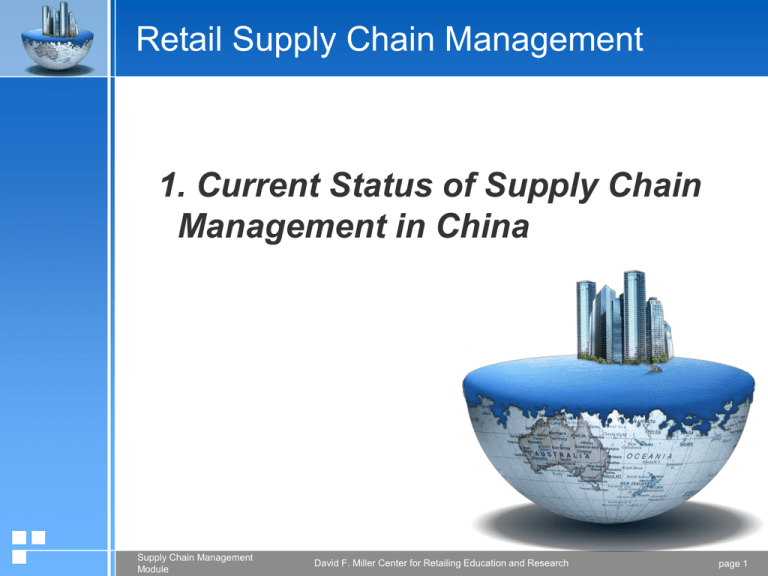
Retail Supply Chain Management 1. Current Status of Supply Chain Management in China Supply Chain Management Module David F. Miller Center for Retailing Education and Research page 1 Objectives Learn the supply chain management practices of MNREs in China Understand the current status of the supply chain management of Chinese retailers Identify the major problems and opportunities in retail supply chain management in China Analyze the direction of the future development of supply chain management in China Supply Chain Management Module David F. Miller Center for Retailing Education and Research page 2 Supply Chain Management of Metro in China Metro Centralized purchasing and distribution Frozen food and fresh food distribution center Cold storage and dried food distribution center Non-food merchandise distribution center Information system RFID (Radio Frequency Identification System) Supply Chain Management Module David F. Miller Center for Retailing Education and Research page 3 Supply Chain Management in Walmart Wal-Mart’s success is its information and supply chain management systems. Advanced information system check all store inventories in the world in one hour. Replenishment in 2 days Transportation Own transportation vehicles. Satellite system and GPS on all trucks. Supply Chain Management Module David F. Miller Center for Retailing Education and Research page 4 Supply Chain Management in Walmart (Cont.) Distribution Centers 110,000 square meters and .2 billion products Different types of distribution centers: food, non-food, Sam’s club, apparel, imported products, and return products 320 kilometers and 100 stores Located in the center of the 100 stores Less than one day transportation Located at suburb 85% merchandise go through distribution centers. It has three distribution centers in China Supply Chain Management Module David F. Miller Center for Retailing Education and Research page 5 Walmart in China Challenges for Walmart in China Walmart’s advantages in information system and supply chain management haven’t been fully achieved in China. Don’t have many stores Lack of national suppliers Underdeveloped transportation and supply chain system Lack of information network with suppliers Supply Chain Management Module David F. Miller Center for Retailing Education and Research page 6 Supply China Management of Carrefour in China Carrefour suppliers’ distribution system + distribution center More than 20 distribution centers Localized purchasing and distribution – 85% products were locally purchased. Supply Chain Management Module David F. Miller Center for Retailing Education and Research page 7 Information and Supply Chain Management System of Chinese Retailers Information and supply chain management systems in Chinese retailers fall behind. Gome adopted supply chain management system in 2002. Traditionally rely on suppliers’ distribution system (2003) 74% supplier distribution 13% third party 13% self distribution Supply Chain Management Module David F. Miller Center for Retailing Education and Research page 8 Information and Supply Chain Management System of Chinese Retailers (Cont.) Distribution centers Small Low level of modernization Not fully computerized Few warehouses with air conditioners and refrigerators Short of specialized equipment and vehicles Lack of functions Storage Low efficiency (Zheng and Yi, 2006) Half of distribution facilities haven’t been fully utilized The square feet of distribution centers/ those of stores is 1/3 for Chinese retailers; 1/10 for Walmart Replenishment time for Chinese retailers is 15-20 days; 2 days for Wal-mart Supply Chain Management Module David F. Miller Center for Retailing Education and Research page 9 Information and Supply Chain Management System of Chinese Retailers (Cont.) The information system and supply chain system have developed quickly in recent years 1,500 distribution centers established by chain stores by the end of 2007 It is common for a supermarket to have 60% of self distribution. Some retailers have its own fresh food distribution center and “cold chain” Supply Chain Management Module David F. Miller Center for Retailing Education and Research page 10 Distribution System in China Retail Industry Fewer Intermediates and channel is becoming flatter and wider 60% are purchased from dealers 40% are purchased directly from manufacturers Larger retailers have a higher percentage of direct purchase; small retailers have a higher percentage of purchase from dealers Supply Chain Management Module David F. Miller Center for Retailing Education and Research page 11 Distribution System in China Retail Industry Market concentration is increasing (China Supplier Research Center, 2009) CR4 and CR8 for supermarket are 35.16% and 56.90% respectively in 2005 CR4 and CR8 for supermarket are 38.02% and 59.56% respectively in 2008 Retailers are gaining power (China Supplier Research Center, 2009) 82.05%, commission 11.22%, buy 6.73%, joint-running Wholesalers become fewer and larger Supply Chain Management Module David F. Miller Center for Retailing Education and Research page 12
